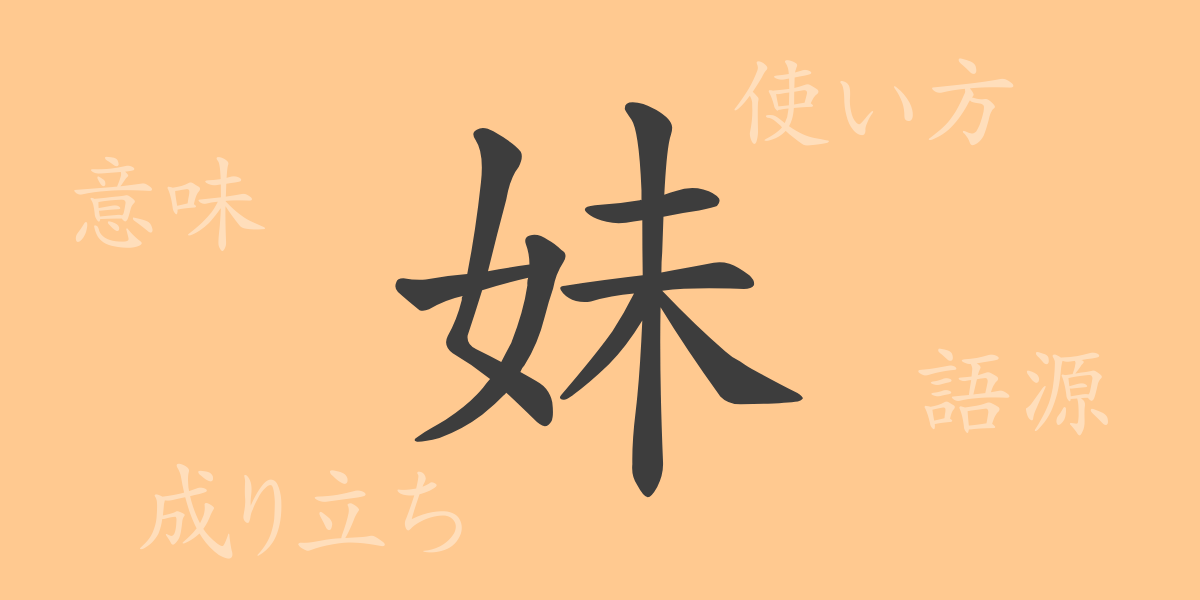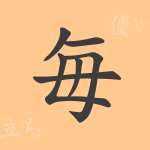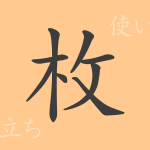In the Japanese language, there is a rich vocabulary that delicately expresses emotions and relationships. The term “妹(いもうと, imouto)” not only indicates a family member but also plays a significant role in reflecting Japanese culture and values. This article delves into the origins, modern meanings, usages, and even idioms and expressions involving the kanji “妹(いもうと, imouto)”.
Origins of 妹(いもうと, imouto)
The kanji “妹(いもうと, imouto)” is derived from ancient Chinese pictographs. Originally, it combined “女(おんな, onna)” meaning woman and “未(み, mi)” meaning immature young tree, representing a younger female, i.e., a sister. Over time, its meaning as a term indicating age relationships within a family was strengthened.
Meanings and Usages of 妹(いもうと, imouto)
Generally, “妹(いもうと, imouto)” refers to a younger female sibling. However, its usage extends beyond family terms to indicate a younger female in a close relationship. Metaphorically, the character “妹(いもうと, imouto)” can also be used to express something endearing or affectionate.
Readings, Stroke Count, and Radical of 妹(いもうと, imouto)
The kanji “妹(いもうと, imouto)” has specific readings and components.
- Readings: On-yomi (音読み) is “マイ(mai)”, Kun-yomi (訓読み) is “いもうと(imouto)”
- Stroke count: 9 strokes
- Radical: 女部(おんなへん, onna-hen)
Idioms, Expressions, and Proverbs Involving 妹(いもうと, imouto)
There are various idioms, expressions, and proverbs that include “妹(いもうと, imouto)”. For instance, “妹背山婦女庭訓(いもせやまおんなていきん, Imoseyama Onna Teikin)” is the title of a classic literary work depicting sisterly love, symbolizing deep familial affection. The place name “妹尾(せのお, Seno)” is said to originate from a high birth rate of sisters, reflecting the region’s history and culture with the character “妹(いもうと, imouto)”.
Summary of 妹(いもうと, imouto)
The kanji “妹(いもうと, imouto)” not only refers to a family member but also carries rich emotions and cultural background within the Japanese language. Its usage, evolving with time and context, consistently conveys warmth and affection. The character “妹(いもうと, imouto)”, symbolizing the cherished value of family in Japan, will continue to be loved and treasured by many.
“`

























